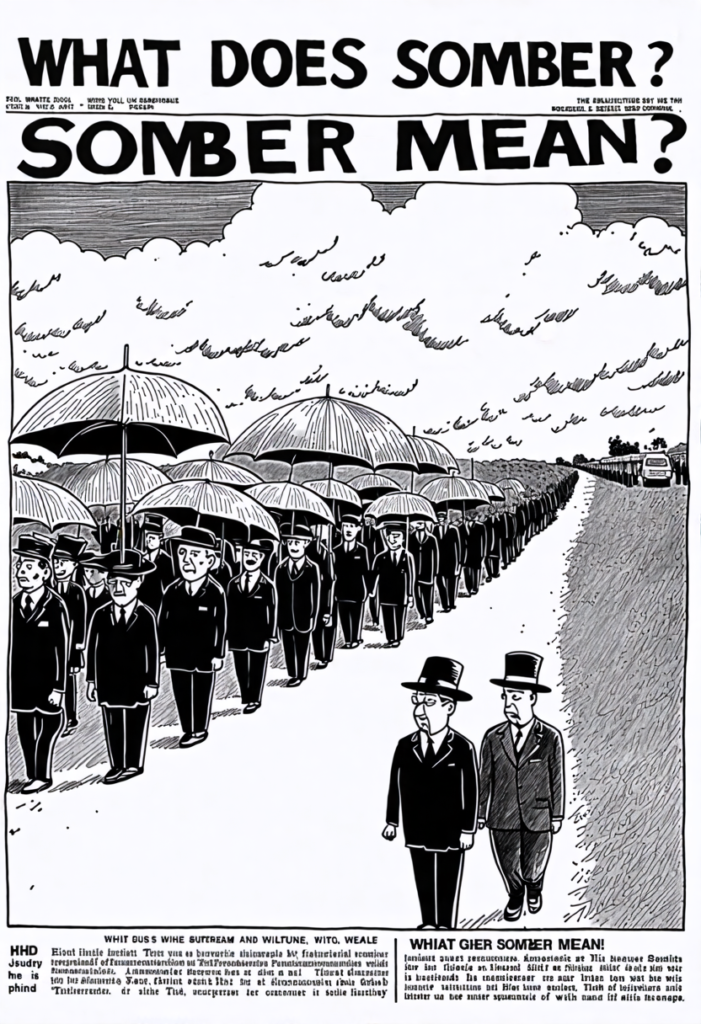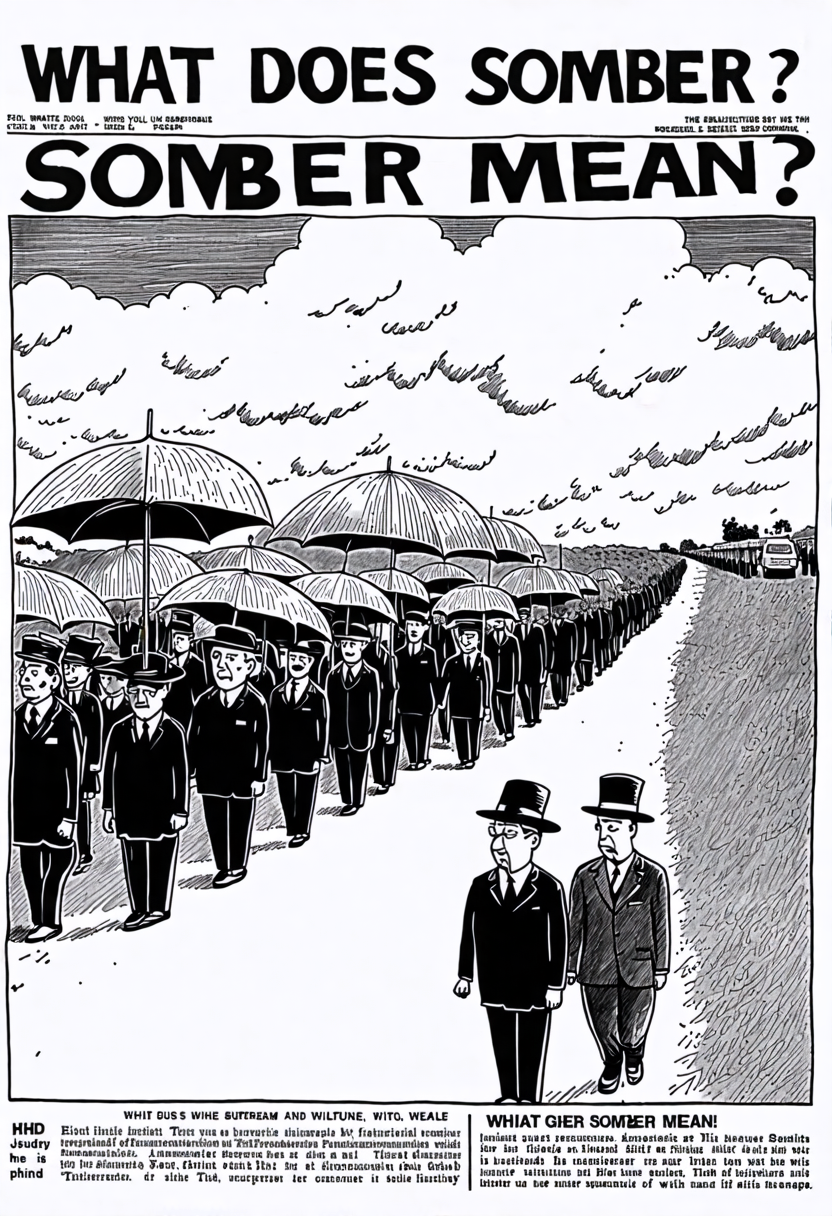What Does Somber Mean?
The word ‘somber’ refers to a mood or atmosphere that is dark, gloomy, and solemn. It originates from the Late Latin word ‘subumbrare,’ which means to shadow, and shares its roots with the Spanish word ‘sombrero.’ In American English, it is spelled ‘somber,’ while in British English, it is ‘sombre.’ This term is often used to describe things like funeral settings with a somber tone, gloomy weather, or a dark-colored suit meant for serious or mournful occasions.
Definition and Origins
The word ‘somber’ refers to a mood or atmosphere that is dark, gloomy, and solemn. It is often used to describe situations that are serious and grave.
The term has its roots in the Late Latin word ‘subumbrare,’ which means to shadow. This etymology highlights its connection to darkness and obscurity. Remarkably, the Spanish word ‘sombrero’ also shares this root, emphasizing the shading or covering aspect.
‘Somber’ is typically used in American English, while ‘sombre’ is preferred in British English. Despite the spelling difference, both words convey the same sense of solemnity and seriousness. This distinction underscores the variations in English usage across different regions.
Usage and Examples
In various contexts, ‘somber’ effectively conveys a sense of darkness and gravity. It is often used to describe a funeral, where a somber mood prevails among the attendees.
The term also depicts a somber sky, indicating overcast or gloomy weather conditions. Additionally, a somber suit is typically dark-colored, suitable for formal or mournful occasions.
A somber expression reflects deep seriousness or sadness, often seen on someone’s face during difficult times. These examples illustrate how ‘somber’ can be applied to different scenarios to evoke a feeling of solemnity and seriousness.

Somber Vs. Sombre
Differences between ‘somber’ and ‘sombre’ stem from variations in British and American English spelling conventions. ‘Somber’ is the American English spelling, while ‘sombre’ is the British English version. Both words share the same meaning and are used to describe situations that are dark, gloomy, or serious.
The spelling change is similar to other words like ‘color’ (American) and ‘colour’ (British). The British spelling ‘sombre’ retains the original French influence, demonstrating the broader tendency in British English to preserve French-derived spellings. In contrast, American English tends to simplify these influences.
When writing, it is essential to use the correct spelling based on your audience’s regional preferences.
Frequently Asked Questions
Can “Somber” Describe Both Physical and Emotional States?
Yes, ‘somber’ can describe both physical and emotional states. It can refer to a dark, gloomy atmosphere or appearance, and to feelings of sadness, seriousness, or solemnity in a person’s mood or expression.
How Is “Somber” Used in Literature and Poetry?
In literature and poetry, “somber” often describes a melancholic or serious tone. It can depict settings and moods, such as a gloomy landscape or a character’s sorrowful emotions, enhancing the depth and gravity of the narrative.
What Are Some Synonyms and Antonyms for “Somber”?
Synonyms for ‘somber’ include gloomy, melancholy, and solemn. Antonyms encompass cheerful, bright, and joyful. These words capture the essence of ‘somber’ and its opposites, providing a clearer understanding of its use in varying contexts.








